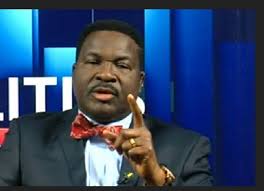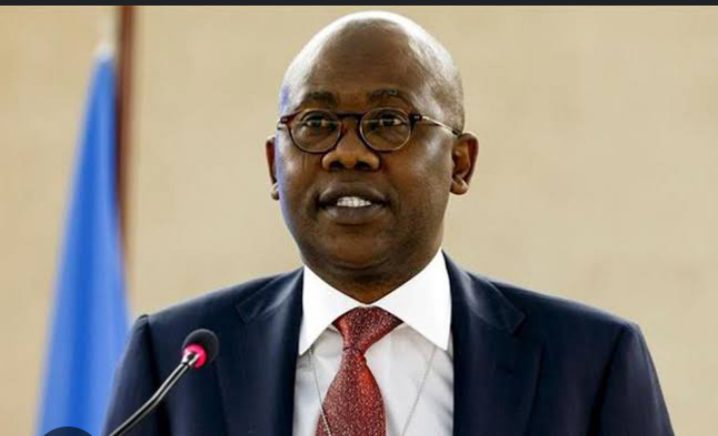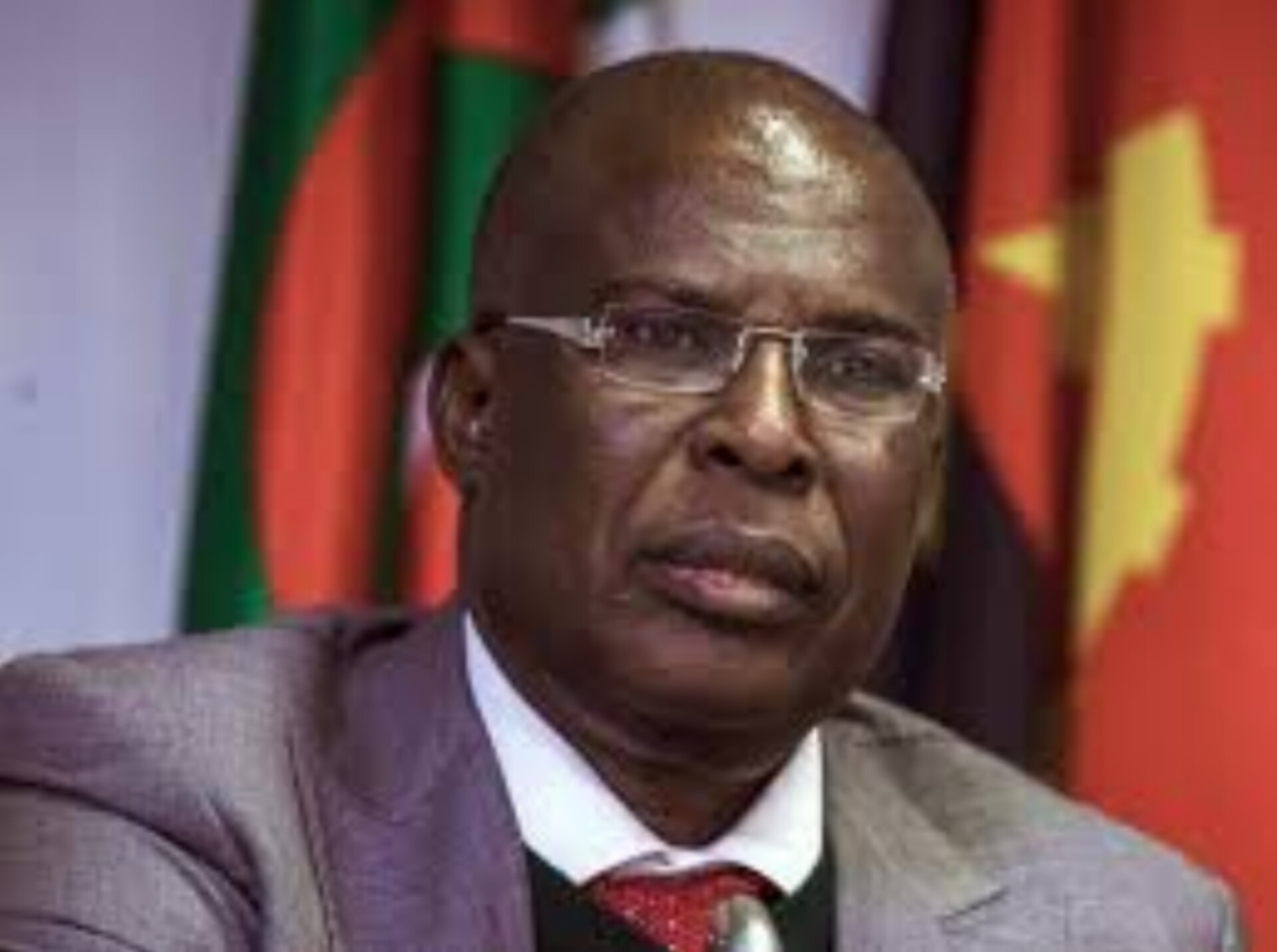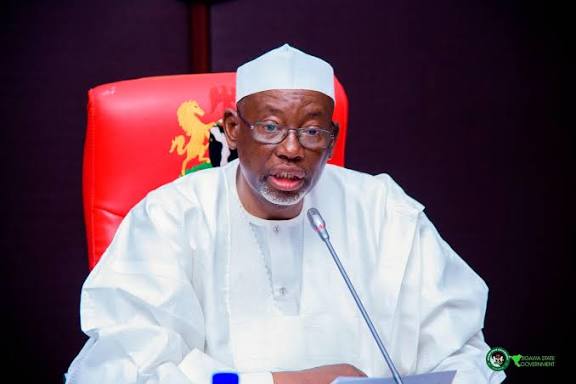BY Chief Mike A. A. Ozekhome
Introduction
The APC political contraption never ceases to amaze and confound me. It intrigues me to no end. This is a party ( is it really one, going by the text book definition of a politcal in political Science ?) that rose from its often predicted imminent disintegration into smithereens, like a phoenix from its ashes, in a groggy, fumbling, wobbling, dawdling and near crumbling manner, to holding its first ever National Convention in March, 2022. At this swordy Convention, daggers were drawn and former two time PDP Governor and Senator, Abdullahi Adamu, was virtually crudely shoved down the already parched throats of majority of the APC members who had preferred former Nassarawa State Governor, Umaru Tanko Al-Makura as National Chairman. It was simply a triumph of a powerful minority cabal over a silent helpless majority. I had predicted this when I vigorously kicked against consensus as a substitute for direct primaries in the new Electoral Act of 2022.

The Tinubu Abracadabra
The APC unsurprisingly harvested a turbulent National Primaries Convention on 9th June, 2022, where Asiwaju Bola Ahmed Tinubu valiantly shrugged off sustained attempts to muzzle him out of the presidential race through unorthodox means by a cabal believed to be working for President Muhammadu Buhari. Indeed, the “palace coup” executed by this faceless cabal headed by newly selected Adamu (they called it “election by consensus”), had told the whole world that the Senate President, Ahmed Lawan, had been anointed as the “consensus candidate”.
Tinubu, a political maestro, reached for his talismanic bag of “politricks”, fished out an abracadabra magical charm in a deft political move that led to some presidential aspirants stepping down for him right at the very venue of the Convention.
This was after the Northern APC Governors had unanimously and roundly rejected Adamu’s flown kite of “consensus” for Lawan. The NWC of the APC later completed the rejection of the Lawan farce. Tinubu later trounced Ahmed Lawan who garnered a miserable 152 votes (coming 4th position) with 1,271 winning votes. Tinubu also dusted Rotimi Amaechi (316 votes) to second position; while cerebral lawyer, Prof Yemi Osibanjo (whom many had thought taciturn and inscrutinable president Buhari would naturally hand over to, having served him with total loyalty and fidelity for 7 years), came sprawling on his belly to the third position, with a miserly 235 votes. In Nigeria, politics is politricks. It defies logic and sense.
“Place Holder” Zooms in
So, APC continues to taunt us. From high-falutin and unfulfilled promises of 2015 and 2019 (robust economy; defeating boko haram and insecurity; killing corruption), the APC has now drawn us into a new era where it has introduced a new political terminology into our political lexicon and vocabulary. It is called “place holder”. Editor of Thisday Lawyer pages, daringly courageous, fecund, cerebral and intellectually-grounded writer, social critic and upscale layer, Onikepo Braithwaite (her mother is chief (Mrs) Priscilia Kuye, former NBA President; a fruit does not fall far away from the mother tree), provided us with a most apt title: “RUNNING MATE; DUMMY MATE!! This is one of the best titles I have ever seen as a journalist and writer myself. Thank you, Onikepo, for standing firm and nationalistic.
What is Place Holder?
The Free Dictionary defines “placeholder” as “One who holds an office or place, especially as a deputy, proxy, or appointed government official”.
Princeton’s Word Net sees placeholder “As a proxy, procurator; a person authorized to act for another.
Dictionary.com defines it as “something that makes or temporarily fills a place”.
A “Dummy candidate”, says Wikipedia, on the other hand (another terminology for placeholder), is a candidate who stands for election, usually with no intention or realistic chance of winning. Wikipedia is more exhaustive. It says
“a dummy candidate can serve any of the following purposes:
“In instant-runoff voting, a dummy candidate may direct preferences to other candidates in order to increase the serious candidate’s share of the vote.
“A dummy candidate may be used by a serious candidate to overcome limits on advertising or campaign financing. In India, for example there have been cases of serious candidates fielding multiple dummy candidates to distribute their poll expenses. The expenses are directed towards the campaign of the serious candidate, but shown to the election commission under the dummy candidates’ names.
“Dummy candidates with names similar to that of a more established candidate may be fielded by political parties to confuse the voters, and cut that candidate’s vote share. The dummy candidate’s name also may be deceptively similar to that of a retiring incumbent”.
The President and VP as Siamese Twins
The office of the President is an office that demands two good heads, having regard to the premium placed on the office. The Vice-President is not a substitute for the president: he is an ever-present partner, help and associate. While a person cannot occupy the office of the President in perpetuity, the office of the president remains perpetual. Every President must have a Vice-Present. The relation is like that of Siamese twins, tied together by the same umbilical cord. This is why some people have erroneously regarded a VP as a “spare tyre”. No, he is not! Can a “place holder” substitute for this?
The relationship between the President and the VP actually starts before the conduct of any election. As a matter of fact, Section 142 of the Constitution of the Federal Republic of Nigeria, 1999 (as amended) (1999 Constitution) provides that:
“… a candidate for an election to the office of President shall not be deemed to be validly nominated unless he nominates another candidate as his associate from the same political party for his running for the office of President, who is to occupy the office of Vice-President and that candidate shall be deemed to have been duly elected to the office of Vice-President if the candidate for election to the office of President who nominated him as such associate is duly elected as president. …”
There are at least five principles embedded in the provision above. First, every President must have a VP. Second, the validity of the nomination of a candidate for the office of the President is predicated solely on him nominating another candidate who shall serve as the VP. Third, if the nomination of a candidate to the office of the VP is provisional, the nomination of a candidate for the office of the President is provisional as well. Fourth, anything that invalidates the nomination of a candidate to the office of the VP, equally affects the candidate for the office of the President. Fifth, the candidate for the office of the President nominates the candidate for the office of the VP and is deemed to have acquiesced and agreed to be bound by any danger inherent his nominee. Sixth, the nominee and the nominator must belong to the same political party.
The nomination of a candidate for the office of the President and that of the VP is therefore joint. If the nomination of the candidate for the office of the VP is provisional, that of the President is equally provisional. It is inchoate. What is good for the goose is good for the gander. This is the first legal implication of taking a dangerous step such as this.
The intermediate court dilated on this relationship in quite an extensive manner in Atiku Abubakar v. Attorney-General, Fed. (2007) 3 NWLR (Pt 1022) 601 at 642. The Court held, Per Abdullahi, PCA, as follows:
“The President and the Vice President of the Federal Republic of Nigeria are jointly elected at a general election and the relationship between them is not that of a master and servant. In other words, the vice president is not an employee of the President or of the political party on whose platform they are both elected. In the instant case, the plaintiff not being an employee of the President or the political party on whose platform he was elected, he cannot be impliedly or constructively removed by either of them. “The Vice president, not being an employee cannot be impliedly or constructively removed. Assuming he qualifies as an employee, without, for a moment so deciding, his employer would most manifestly be the people of Nigeria, who elected him to the office, acting through their representatives in the national assembly but certainly not the President of the Federal republic of Nigeria nor the sponsoring political party. This assumption is based on the cliche that the power to hire is the power to fire embedded in Section 11 of the Interpretation Act. See Longe v. First Bank of Nigeria Plc (2005) ALL FWLR (Pt. 260) 65. In other words, this matter is a matter that falls squarely within the contemplation of Section 143 of the Constitution which expressly provides for the removal of the President and Vice President from office.”
The legal implications of Placing a Place Holder
At this stage, it is important, I clarify that a “candidate” for an election is different from the holder of the office of a VP. Section 152 of the Electoral Act, 2022, defines a candidate as a person who has secured the nomination of a political party to contest an election for any elective office. It is only the winning of an election that changes or translates a candidate to a VP. However, one need not be a candidate for an election before he can become a VP. This is because a VP is automatically selected as a running mate by a presidential candidate.
A political party bears the consequences of not submitting at all, or submitting an invalid candidate for an election. This is because by section 131(c) of the Constitution, a candidate for an election to the office of President must be sponsored by a political party. Section 84 (1) of the Electoral Act, 2022, states that a political party seeking to nominate candidates for elections shall organise primaries for the aspirants under the supervision of the Independent National Electoral Commission. Section 29(1) of the Electoral Act mandates every political party to submit to INEC, not later than 180 days before the date appointed for the general election, the candidates it is sponsoring in that general election. The submission of candidate to INEC constitutes a definite and unambiguous statement of the intent of the political party to have that candidate only as its representatives in the election. The nomination of a candidate and submission of his name by that political party to INEC therefore seals the sponsorship of a candidate for an election. Once the window of nomination closes, all parties become functus officio.
Can There be a Surrogate Running Mate?
Who then is a placeholder in relation to a candidate? A placeholder is not a candidate for an election. He is an unknown person who has the seal of a political party to occupy the position of an unknown person; a mere faceless surrogate. His position creates uncertainty in a political party as his presence can mar or invalidate the nomination of his principal. This person is clearly unknown to law and the political party that submits such an unknown person to INEC is deemed to be aware of its wrongdoing and must ready to face the consequences of its gamble.
The APC Presidential candidate, Bola Tinubu, had nominated Ibrahim Masari, a Katsina politician, as the party’s place holder or dummy candidate, for his yet to be named running mate, so as to beat the INEC deadline.
Masari had served the APC as its National Welfare Secretary under the Adams Oshiomhole – led, National Working Committee (NWC). It is believed that the issue of Tinubu having a Muslim-Muslim ticket (Prof Babangida Zulum of Borno State is said to be the preferred one) is tearing the party apart. Can they repeat the Abiola-Babagana “Hope 93” successful Muslim-Muslim joint ticket with the present state of the nation where religion is tearing apart? Only time will tell.
Similarly, the Labour party’s Presidential candidate, Peter Obi, is reported to have also opted to submit the name of his campaign Director General, Doyin Okupe, as his dummy/ place holding running mate.
Whereas section 29(1) of the 2022 Electoral Act, as amended, provides that political parties shall submit names of their candidates, not later than 180 days before the date appointed for the general election, Section 31 of the Act also gives the political parties an opportunity to withdraw and substitute their candidates, not later than 90 days before the election
Section 31 states that “A candidate may withdraw his candidature by notice in writing signed by the candidate to the political party that nominated him for such election and the political party shall covey such withdrawal to the Commission not later than 90 days to the election”.
The Commission had as part of its administrative arrangements given up till 6pm of Friday June 17, 2022, as deadline for the submission of names of candidates for the Presidential and National Assembly election; and 15th July, 2022, for the Governors and State Assembly candidates.
In fulfillment of Section 31 of the Electoral Act, the Commission gave July 15, 2022, as last day for withdrawal by candidates and replacement of withdrawn candidates by the political parties.
Similarly, the Commission also gave the parties up to August 12 for the withdrawal and replacement of withdrawn candidates by the political parties.
This means that the parties who are still facing crises over the choice of running mates still have until the July 15, 2022, to substitute the names being forwarded at the moment, with respect to the Presidential candidates.
Section 31 of the Electoral Act provides that a candidate may withdraw his or her candidature by notice in writing signed by him and delivered personally by that candidate to the political party that nominated him for the election and the Political party shall convey the withdrawal to INEC not later than 90 days before the election. “Candidate” under the Electoral Act, 2022, has a fixed meaning. The law did not say a candidate “includes”. It says it means. The question that calls for dispassionate determination is whether a placeholder qualifies as a candidate who has secured the nomination of his political party to contest an election? The answer can only be answered in the negative. Its identity speaks for itself. If a placeholder is not a candidate, then he is not a person known to law and envisaged by the law. Its nomination and the subsequent submission of this non-existent being to INEC is not a misnormal that can be remedied by replacement or withdrawal under Section 31. Its nomination and submission to INEC seals the fate of the political party that submitted its name.
Any Escape Root?
The political parties have already submitted names of candidates. Section 142(1) of the 1999 Constitution of the Federal Republic of Nigeria (as amended)(the Constitution) clearly provides that the a Presidential candidate must nominate his running mate from the same political party. While Chapter VIII of the PDP Constitution provides for the nomination of candidates for election into public office; Article 20 of the APC Constitution provides for elections into elective positions and appointments. These are clear enough.
Having established that the existence of a placeholder is unknown to law, can this non-existent entity be replaced or substituted by a candidate? Some principles of law might be of help to us here. In the case of ANEGE & ORS v. ALANEME & ORS (2020) LPELR-50445(CA), Per Muhammed Lawal Shuaibu, JCA, considered at pages 19 – 22 whether the court can grant an amendment for the substitution of a non juristic person with a juristic person. He held thus:
“… I have right from the onset stated that after filing the notice of preliminary objection by the defendant at the lower Court, the claimants thereafter filed a motion on notice to substitute the unregistered “Ideato Welfare Association” with “The Registered Trustees of Ideato Cultural and Welfare Association, Calabar” or to amend the status of the 1st and 3rd defendants to show that they are principal officers of the Registered Trustees of Ideato Cultural and Welfare Association, Calabar. A misnomer when associated with issues of juristic personality and mis-description of names of parties simply means the “wrong use of a name or a mistake in naming a person, place or thing, especially in a legal instrument which should ordinarily not lead to a nullification of the proceedings. In other word, a misnomer in the context of litigation occurs where the entity suing or intended to be sued exists, but a wrong name is used to describe that entity…………. The Supreme Court had recently restated the legal position in APGA Vs Ubah & Ors (2019) LPELR – 48132 (SC) held that if the entity intended to be sued exist but a wrong name is used to describe it, that is a misnomer………. The Supreme Court has inter alia held that naming a non-juristic person as a party is not a misnomer and amending same to substitute a juristic person is out of it. This is so because there cannot be a valid amendment of the title of a suit since there never was a legal person who was brought before the Court by the action. And since to be competent a suit must be instituted between legally juristic persons, failing which it is incompetent and a juristic party cannot subsequently be amended to take the place of a non-juristic party originally sued. The correction made by the lower Court by replacing a non-juristic person with one with legal capacity was done without jurisdiction….”
Was a shadowing, ghost and non recognized “placeholder” or “dummy mate” ever contemplated by the Electoral Act of 2022, as a juristic person? I think not. Mr Sheriff Machina has already introduced this dangerous step through his “Deus ex Machina”, by bluntly refusing to step down for Senate President, Ahmed Lawan. Supposing Kabiru Masari, Ahmed Tinubu’s “dummy mate” proves stubborn and refuses to kowtow? What happens? Assuming Dr Doyin Okupe, Peter Obi’s D-G and place holder refuses to yield? What is INEC’s position on these? I see some legal fireworks in the offing in the next few days and weeks ahead. Politrics and Politricians!!!




